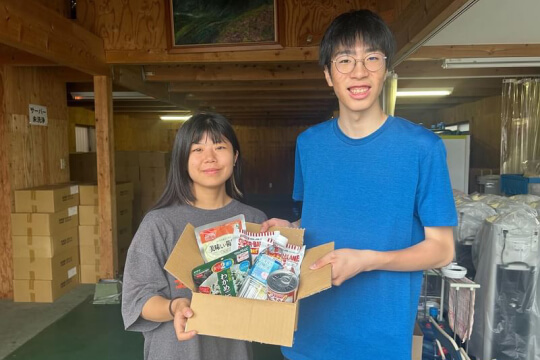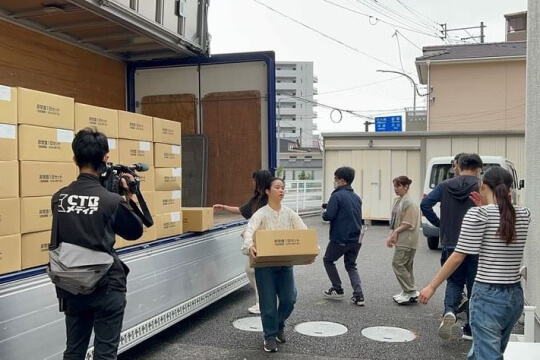On Monday, July 15th, the student group "Food Pantry Irodori," which operates as part of the support system Project B for APU student organizations, held a "Food Pantry" event on campus where they distributed donated food from food banks and companies for free. The group aims to raise awareness about Japan's food waste problem and provide food to those in need. Students participating in the food pantry must complete a survey to understand the group's objectives before receiving food. On the event day, many students supported the cause by receiving food that would otherwise go to waste, contributing to the reduction of food loss.
Since being selected for Project B in November 2023, Food Pantry Irodori has held six food pantries at APU and three in the Kamegawa area, raising awareness about food waste among many students and local residents. Additionally, in June, the group launched their first "Emergency Food Stock Distribution Project," receiving and distributing 3,200 sets (4 tons) of emergency food stock nearing its expiration date in the Kamegawa area, and donating it to welfare facilities through the Beppu City Council of Social Welfare. Although the group initially aimed to distribute 3 tons of food annually, they have already distributed 5.6 tons in eight months.
The group handles all aspects of organizing the food pantry, including sourcing food donations, arranging transport, securing storage and event locations, and managing food distribution. They consistently ensure thorough food management, meticulous inspection, and emphasize traceability to ensure safe operations for both the food donors and the participants.
Shuta Komizo (2nd year from the College of Sustainability and Tourism, Japan), the founder of the group, has been interested in food waste since high school and has been involved in food pantry activities. Although he did not plan to start a group when he entered university, he was inspired by the active students around him and gathered like-minded peers to apply for Project B. Komizo hopes to raise awareness about food waste among students and the local community and inspire more young people to engage in similar activities. The group's membership has grown from seven to sixteen, and many more have expressed interest in joining.
The food pantry distributes food donated by food banks and companies for free, but it imposes significant time and physical demands on the organizers. However, Komizo views the smiles of participants when they receive food as a rewarding moment that makes the effort worthwhile. He said, "I want others to feel the sense of accomplishment in actually reducing food waste with their own hands. The best part of this activity is meeting people, hearing their stories, and sharing empathy."
Going forward, the group aims to establish a permanent food pantry in Kamegawa, connect with local welfare services, and continue delivering food to those in need.











